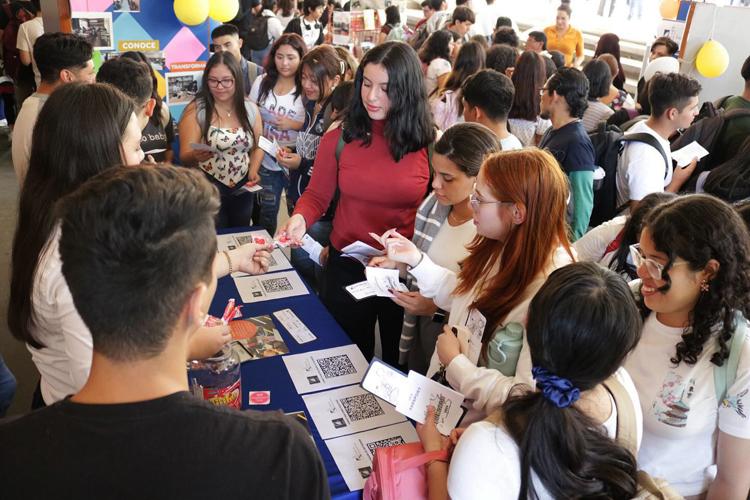Carla has lived in La Libertad, El Salvador, for a month now, studying at the Jesuit university that took her in to finish her Psychology degree. She had to stop when the Ortega-Murillo regime confiscated the Central American University (UCA) of Nicaragua on August 16, 2023.
Her apartment is at a walking distance from her new university. The place she stays at houses seven other Nicaraguan students who migrated for the same reason: to continue their studies at the José Simeón Cañas Central American University (UCA) in El Salvador.
When the confiscation happened, Carla was a year away from graduating as a psychologist and hoped to finish all her studies in June 2024. “I only needed two semesters,” she explains. However, her plans quickly fell apart.
Two weeks after the confiscation, an opportunity came up for her and other students stranded in the middle of the dictatorship’s confiscation. The José Simeón Cañas Central American University (UCA) in El Salvador and the Rafael Landívar University (URL) in Guatemala offered admission to UCA students as long as they stayed there for at least a year.
Recibe nuestro boletín semanal
Although the Guatemalan and Salvadoran Jesuit universities had offered a virtual option, the Psychology program was only offered in person. Carla had to choose between leaving the country to continue her degree or staying at the university now controlled by the regime, the Casimiro Sotelo Montenegro National University (UNCSM). She immediately chose to migrate to El Salvador.
“I found it more cost-effective to study at the UCA in El Salvador. It was more convenient for me and closer to Nicaragua, making it easier to travel there in case of an emergency. I also felt a stronger connection with that university,” she says.
José Simeón Cañas Has Not Officially Announced the Acceptance of Nicaraguan Students
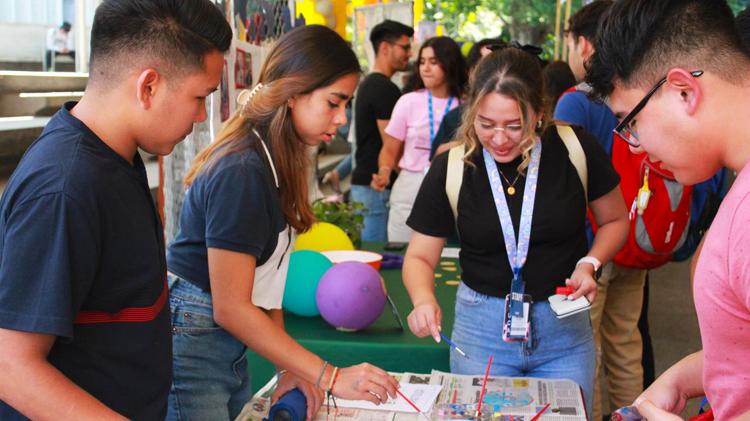
As Carla explored the campus and classrooms of Simeón Cañas, she realized that the population of Nicaraguan students was larger than she expected. She even saw some familiar faces, classmates from her generation, as well as students from other programs she had never spoken to but now says hi to because of the circumstances.
The university and the Salvadoran community have been kind to her and the rest of the Nicaraguan students, offering them multiple welcomes and assistance with everything they need. However, the rest of the Salvadoran student body seems unaware of why there are so many Nicaraguan people on their campus.
“The university has not officially informed the student population about the acceptance of UCA Nicaraguan students due to security concerns. Many Salvadoran students don’t know what happened; we’ve had to tell them ourselves. Many didn’t even know there was a UCA in Nicaragua. The less is said about us, the better,” Carla says.
The Rafael Landívar University (URL) of Guatemala reported that as of February 20 of this year, 260 Nicaraguan students were enrolled in the university: 240 virtually and 20 in person. UCA José Simeón Cañas of El Salvador has not shared any data on this matter.
According to several interviews by DIVERGENTES, so far, UCA José Simeón Cañas seems to be the university that has received the most Nicaraguan students, both in-person and virtually. DIVERGENTES also wrote to the Inter-institutional Committee created by both universities and the Jesuit Order for more information on this matter but received no response.
Confiscation of UCA Cost Him both His Job and His Studies
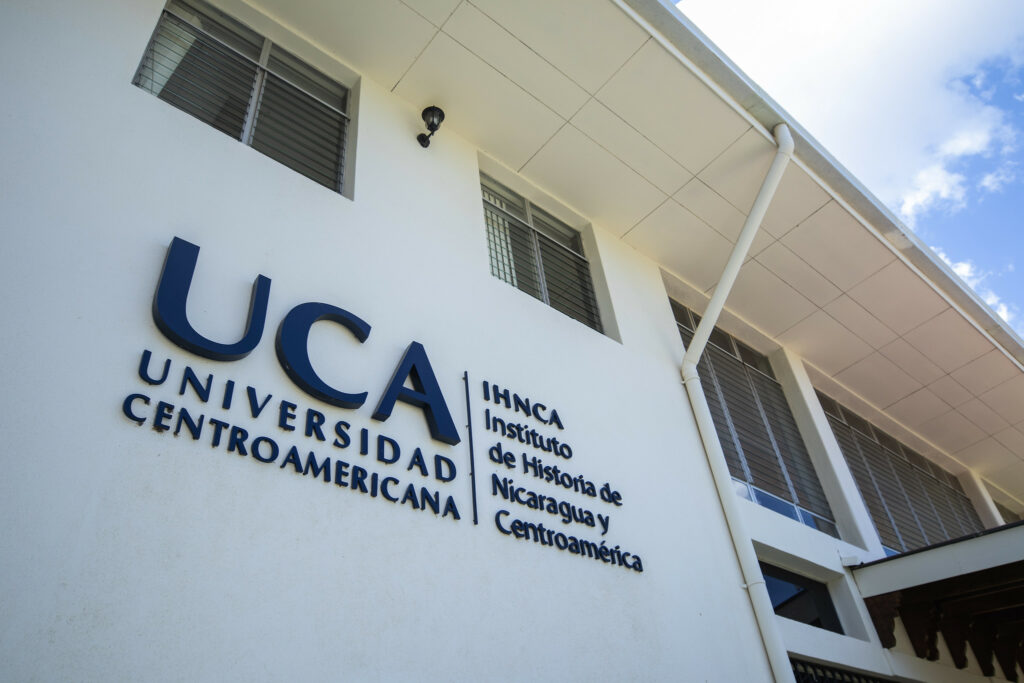
Although Álvaro’s degree was offered virtually at UCA José Simeón Cañas, he saw studying in person as a way to distance himself from the Nicaraguan political context.
“I never liked virtual learning. I don’t do well with that method. Besides, I saw this as an opportunity to distance myself a bit from a country where the reality is getting worse every day,” he confesses.
At the time of the confiscation, Álvaro was in his junior year of Communication and also worked at the Institute of Nicaraguan and Central American History (IHNCA), now renamed the Institute of Nicaraguan heroes.
“I experienced UCA’s closure up close. Students were on vacation, but workers weren’t, so I was there on the day of the confiscation. I remember it with adrenaline. I found out about it through the news because the university authorities didn’t tell us anything,” he recalls.
On August 16, 2023, the UCA staff was forced to immediately leave the premises. “When I read the news, I left IHNCA and went to my department building. They told us the police were at the gates. We had to rush to grab our things and take our documents,” he adds.
Upon arriving home, Álvaro realized that he had not only lost his job, which he had just started six months prior, but also his alma mater, as he had no intention of studying at a university controlled by the regime.
“I started the process of applying to UCA José Simeón Cañas. I couldn’t get my digital transcript. I managed to get the Casimiro Sotelo University to give me my transcript on the last day I could apply, December 5, 2023, thanks to UCA José Simeón Cañas extending the document submission deadline,” he explains.
The confiscation also meant the loss of $1,200 he had paid for classes in the second semester of 2023. The Ortega authorities never refunded his money. The Jesuit institution had all its accounts frozen, and due to its cancellation and expulsion from the country, they could not refund him for anything.
Although Carla and Álvaro will have to study longer than planned to complete their university degrees, they both agree it was the best decision for them. After credit validation, Carla and Álvaro must finish two more years to graduate.
Regime Prevented Several Students from Continuing Their Studies
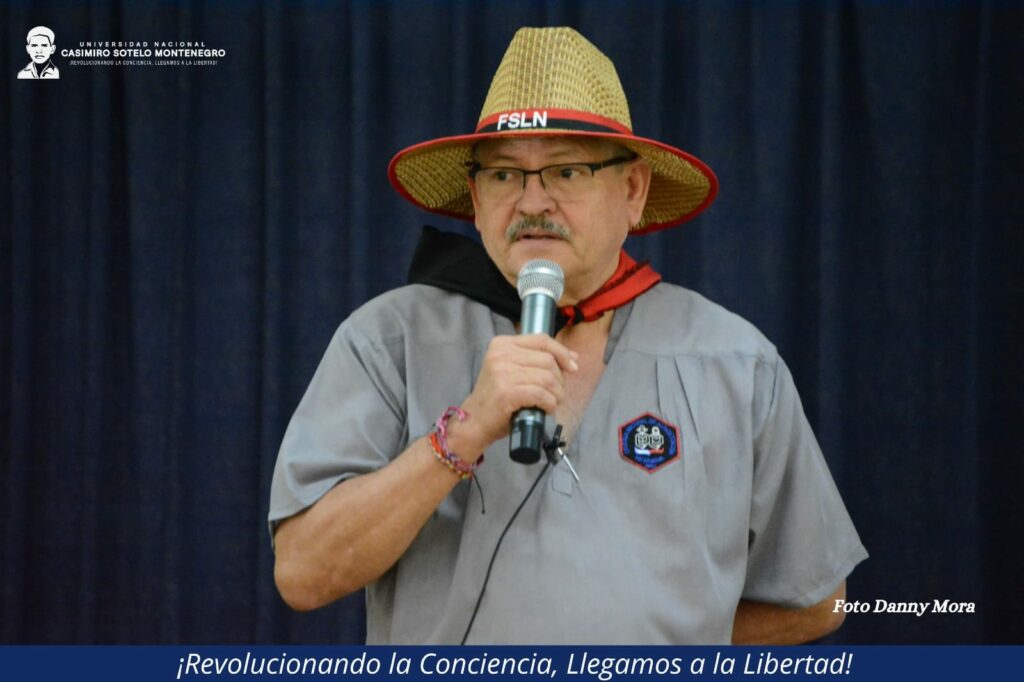
Lucía thought she had completely lost the opportunity to study. After the confiscation, the 23-year-old enrolled at the American University (UAM), along with hundreds of other students from the seized university. However, her enrollment was canceled on August 22, 2023.
When the Casimiro Sotelo University (UNCSM) finally opened its doors for student enrollment, compelled by the inability to study at another university, Lucía attempted to enroll, but the Ortega authorities didn’t allow it.
“I had lost hope of continuing my studies. I only needed four classes to finish my degree, but they wouldn’t let me study anywhere. They canceled my enrollment at UAM and denied me enrollment at Casimiro. However, there was a glimmer of hope when I was able to enroll at UCA José Simeón Cañas,” she says.
Lucía says that a group of six other students she knew personally were also prevented from studying at UNCSM. All of them were about to complete their degrees and were not given any reason for the denial. “They closed the doors on us,” she says.
Costs for Nicaraguan Students
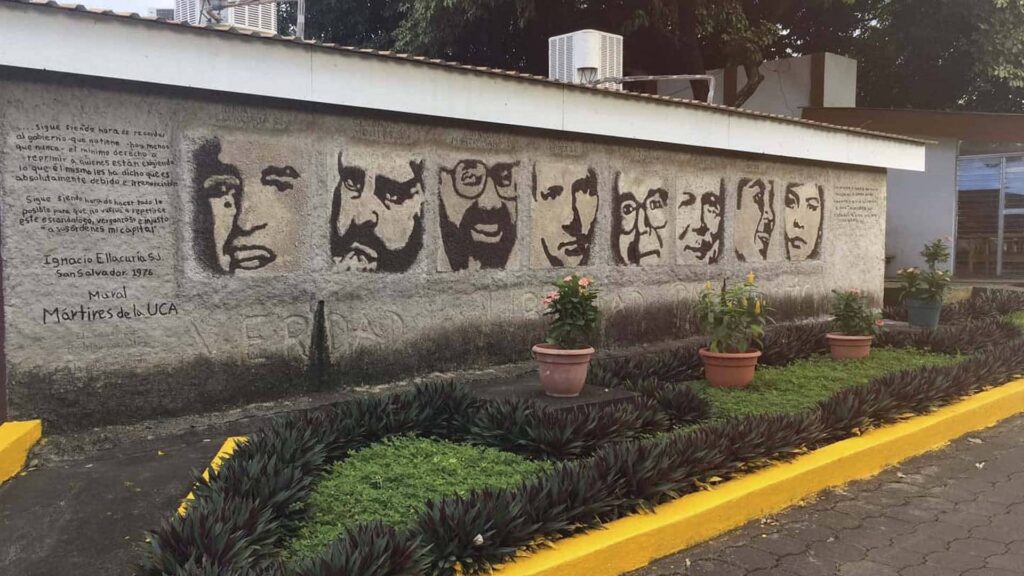
Lucía is now studying Communication online at UCA José Simeón Cañas. She started a month ago. She ultimately decided to study at this university, as URL of Guatemala only offered in person classes, and she did not have the means to live in another country.
“Studying at the University of Guatemala meant moving to another country, and I had never left Nicaragua. It was not a good option for me, especially because of money,” she explains.
After a conversation with her parents, they agreed to continue financing her studies, which cost $100 for enrollment and $130 for monthly tuition. This amount was adjusted for all Nicaraguan students, regardless of their field of study.
Lucía is being taught by professors who taught her courses at UCA Nicaragua in some classes. For her, this means finding a piece of her old university at this new institution. “I was happy to see my professors again. I’m happy and grateful. Although it will take me more time, it’s better late than never,” she says.
The four classes she needed to complete her degree have now turned into two years at UCA José Simeón Cañas. However, Lucía clarifies that she does not want to miss the opportunity to graduate.
Graduated Students Still Awaiting Their Diplomas
Nine months after the Ortega-Murillo regime dismantled one of the country’s most important educational institutions, Milena and Olivia are still fighting to obtain their university degrees from the Casimiro Sotelo University, which has not yet issued any.
The only diplomas that UNCSM has issued were those that were ready to be awarded on August 29, 2023. The diplomas for Milena and Olivia, which were scheduled to be awarded on September 12 and 24, respectively, are still pending issuance.
Both young women completed their studies in June 2023 and had to pay more than 4,200 córdobas for the paperwork required by UCA, not including the cost of the photos they had to take.
Upon inquiring at UNCSM after the confiscation, the Ortega authorities told them they had to redo the paperwork and pay again for the same process. Although they have already paid an additional 2,000 córdobas for the process, they are still waiting for their university diplomas.
“At first, they told me I only needed three documents to apply for the degree. When I came with the documents, they said they needed authentication, the signature of who knows what, and a whole bunch of other documents. When I submitted everything again, they just said they would let me know when the diploma was ready. They didn’t even give me a delivery date,” explains Milena.
Amid confusing requirements and unclear instructions from the new university, young people applying for their degrees do not receive a clear answer about delivery. The only response they have received is that they will receive an email or phone call notice.
Although it was not formally clarified to them, these new degrees will be issued under the name of UNCSM, even though the students who have already completed their studies never studied at that university but at UCA.
UNCSM Has Not Provided a Delivery Date for Anyone’s Degrees
“I spent five months in denial that I wouldn’t get that degree, but then I realized that studying again to earn a degree was not in my plans. I already finished my degree,” says Olivia.
Olivia explains that many students who had just graduated from UCA and were still waiting for their diplomas considered studying at UCA José Simeón Cañas to earn a diploma from that institution. However, for the Communications program at least, this required studying for an additional two years.
“Initially, the requirement was to study for only a year, but after the validation process, it became more than two years. For me, who had already completed that process, it’s very tiring to start over,” says Milena.
So far, no UCA graduates have received a delivery date for their UNCSM diplomas. The entire student community is awaiting certification of their degrees.

